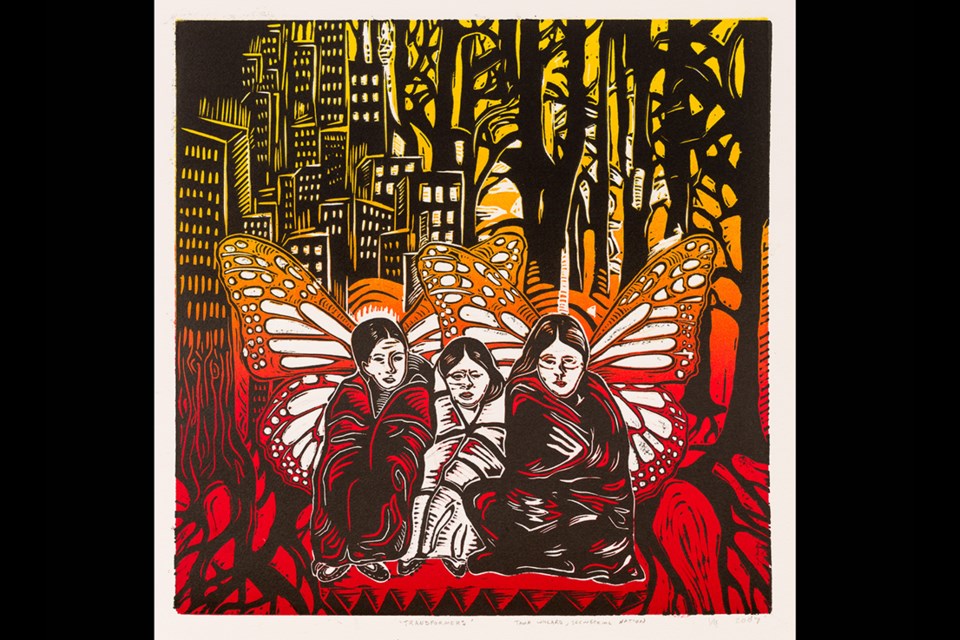Burnaby will look to remember the survivors and the hundreds of First Nations lives lost this weekend as a result of the former residential school system in Canada.
Art pieces by Indigenous creators have been on display at city hall (4949 Canada Way) throughout September building up to honour National Truth and Reconciliation Day this Saturday, Sept. 30 — also known as Orange Shirt Day.
This was part of the municipality's initiative to advance reconciliation and maintain positive relationships with the four host Nations on which Burnaby resides on:
- xʷməθkʷəyəm (Musqueam)
- Sḵwx̱wú7mesh (Squamish)
- səlilwətaɬ (Tsleil-Waututh)
- kʷikʷəƛəm (Kwikwetlem)
"The City of Burnaby recognizes and acknowledges that we are on the unceded homelands of the hənqəminəm and Sḵwx̱wú7mesh speaking peoples and we are grateful to be on this territory," a city poster reads.
Vishad Deeplaul, Burnaby's senior manager of equity, diversity and inclusion (EDI), explained to the NOW that the artwork was donated to the city's permanent art collection.
Most are from Secwepemc artist Tania Willard's Crazymaking series, Deeplaul said.
He noted the series of woodblock prints are meant to speak "to experiences of the Indian Residential School system, as well as the strength drawn from community connection."
"The works respond to legacies of colonialism that affected the arts, such as the potlach ban, and ongoing celebrations of Indigenous culture and traditions, Deeplaul added.
"Crazymaking is about sharing our stories, the beauty, the anger, the confusion, the protest of the living in between worlds… [it] is a visual journey through aboriginal experience, history and healing of mental health issues," Willard's artwork description reads.
Other private donors for the collection include the Salish Weave Collection of George and Christiane Smyth.
Last Saturday, Sept. 23, Burnaby also played host to a soccer camp by Hope and Health to kick-off Truth and Reconciliation Week
The three-hour family event at the Burnaby Lake Sports Complex (BLSC) featured cultural teachings, training sessions with coaches and mentorship moments with traditional knowledge keepers.





